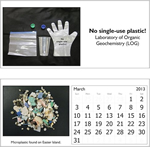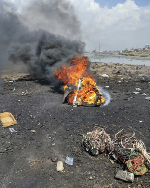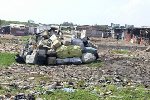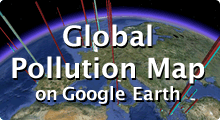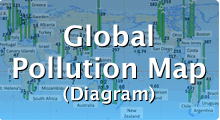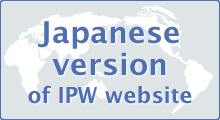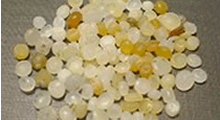Feb 23, 2017.
We got first set of data on polybrominated diphenyl ethers (PBDEs) in pellet samples collected from 43 locations of 24 countries. PBDEs are flame retardants compounded to plastic products and chemical fibers. Most of them are regulated by Stockholm Convention. However, they have been continuously released to aquatic environments from waste plastics and fabrics. Our study with Prof. Izumi Watanabe, Mr. Takashi Tokumaru, and Ghanaian collaborators has highlighted the emission of PBDEs from electronic waste (E-waste). We detected considerably high concentrations of PBDEs (14 – 21 ng of sum of 46 BDE congeners per g-pellets) at several locations near world biggest E-waste site (Agbogbloshie) in Ghana. These concentrations are comparable to those found in western European countries (0.69 – 13 ng/g) followed by USA (17 – 39 ng/g; except for one rural site) and no such high concentrations of PBDEs were observed in the other African countries including Kenya, Mozambique, South Africa whose PBDE levels were less than 3.9 ng/g. The study has underlined the importance of pellet watch to analyze PBDEs and related chemicals near e-waste sites in the world. This study was partly supported by UNU-IAS.
news & topics
Jan 18, 2017.
International Pellet Watch is still going on and active. In 2015 and 2016, we have been receiving many pellet samples from various locations in the world and have been analyzing them, though we were lazy with reporting the results and releasing them through this blog. In 2017, we will be more actively releasing the analytical results. We got progress with publications of the analytical results such as case studies in Vietnam, Brazil and Australia as follows.
Temporal and spatial changes in persistent organic pollutants in Vietnamese coastal waters detected from plastic resin pellets. by Dung Quang Le, Hideshige Takada, Rei Yamashita, Kaoruko Mizukawa, Junki Hosoda, Dao Anh Tuyet, Marine Pollution Bulletin, 109(1), 320-324, 2016.
http://dx.doi.org/10.1016/j.marpolbul.2016.05.063
Spatial variability in persistent organic pollutants and polycyclic aromatic hydrocarbons found in beach-stranded pellets along the coast of the state of Sao Paulo, southeastern Brazil. Satie Taniguchi, Fernanda I. Colabuono, Patrick S. Dias, Renato Oliveira, Mara Fisner, Alexander Turra, Gabriel M. Izar, Denis M.S. Abessa, Mahua Saha, Junki Hosoda, Rei Yamashita, Hideshige Takada, Rafael A. Lourenco, Caio A. Magalhaes, Marcia C. Bicego, Rosalinda C. Montone, Marine Pollution Bulletin, 106 (1-2), 87-94,2016.
http://dx.doi.org/10.1016/j.marpolbul.2016.03.024
POPs monitoring in Australia and New Zealand using plastic resin pellets, and International Pellet Watch as a tool for education and raising public awareness on plastic debris and POPs. Bee Geok Yeo, Hideshige Takada, Heidi Taylor, Maki Ito, Junki Hosoda, Mayumi Allinson, Sharnie Connell, Laura Greaves, John McGrath, Marine Pollution Bulletin, 101 (1), 137-145, 2015.
http://dx.doi.org/10.1016/j.marpolbul.2015.11.006
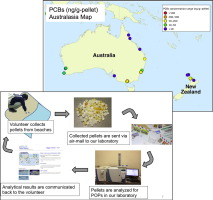
From Yeo et al. (2015)
July 2nd, 2014.
Yesterday, we had very much disappointing news. Prime Minister Shinzo Abe’s Cabinet approved changes to Japan’s postwar security policy that could lead to the Self-Defense Forces’ use of military force in overseas battles.
Though IPW is not political movement, I just wanted to express my opinion against his approval, because it may give serious adverse effects on our international collaboration. IPW totally depends on relationship of mutual trust with participants around the world. The way of the Cabinet is totally opposite from our way. We just want to make international contribution by peaceful way with utilizing our skill and knowledge. I hope that our peaceful collaboration would not be damaged, despite this stupid behavior of the politician.
Shige Takada, coordinator of IPW.
June. 5th, 2014 :
International workshop on Pellet Watch was held in Tokyo (TUAT campus) on May 22nd and 23rd. Dr. Lorena M. Rios Mendoza (University of Wisconsin-Superior, USA), Dr. Rosalinda Carmela Montone (Universidade de São Paulo, Brazil), Dr. Satie Taniguchi (Universidade de São Paulo, Brazil), Dr. Sang Hee Hong (KIOST, Korea), Dr. Hrissi K. Karapanagioti (University of Patras, Greece), Dr. Michail Angelidis (IAEA, Monaco), Dr. Shige Takada (LOG, TUAT, Japan), Dr. Rei Yamashita (LOG, TUAT, Japan) discussed about analysis POPs in pellets and how to integrate their analytical data on global scale. The workshop was financially supported by UNESCO/IOC/GEF (Global Environment Facility) Transboundary Waters Assessment Programme (TWAP)
http://www.geftwap.org/twap-project
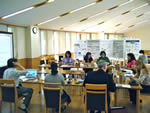
Jan. 29th, 2014 :
New style of pollution maps on Google Map has been launched.
http://www.pelletwatch.org/gmap/
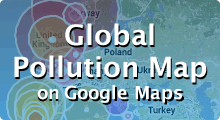
July 4th, 2013 :
Analytical results on UK and Norway pellets have been uploaded.
Pollution maps of Europe and UK have been updated as follows.
European Map (http://www.pelletwatch.org/maps/map-1.html#Europe)
UK Map (http://www.pelletwatch.org/maps/map-1.html#United%20Kingdom)
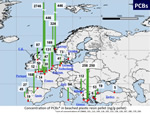
Shige's article on IPW has been published on Ocean Health Index website.
http://www.oceanhealthindex.org/News/Microplastics
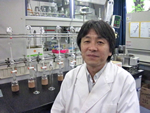
Our paper (Accumulation of plastic-derived chemicals in tissues of seabirds ingesting marine plastics) has been recommended for Faculty of 1000.
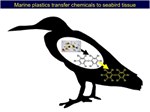
Our paper on POPs in Portuguese pellets "Monitoring of a wide range of organic micropollutants on the Portuguese coast using plastic resin pellets" has been published in Marine Pollution Bulletin, Available online 15 March 2013, ISSN 0025-326X, 10.1016/j.marpolbul.2013.02.008.
(http://www.sciencedirect.com/science/article/pii/S0025326X13000647)
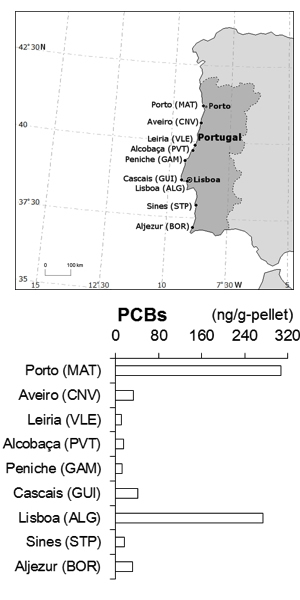
2013 Calendar "No single-use plastic" has been dispatched to the collectors. We really appreciate your continuous support on IPW.
March 4th. 2013
